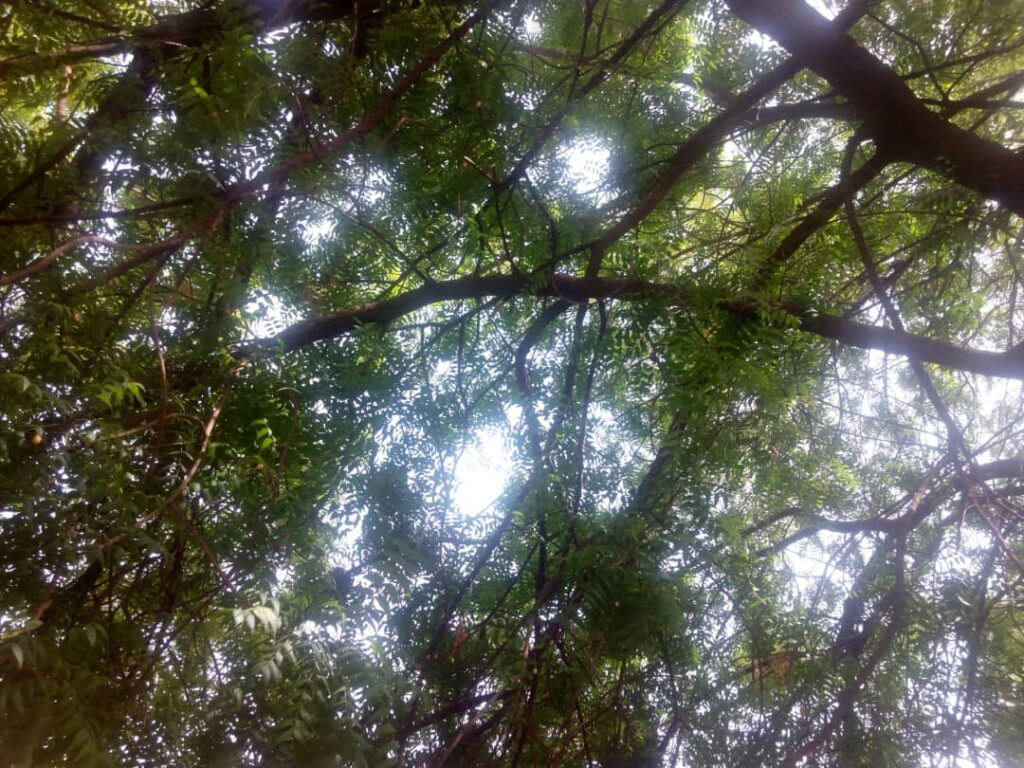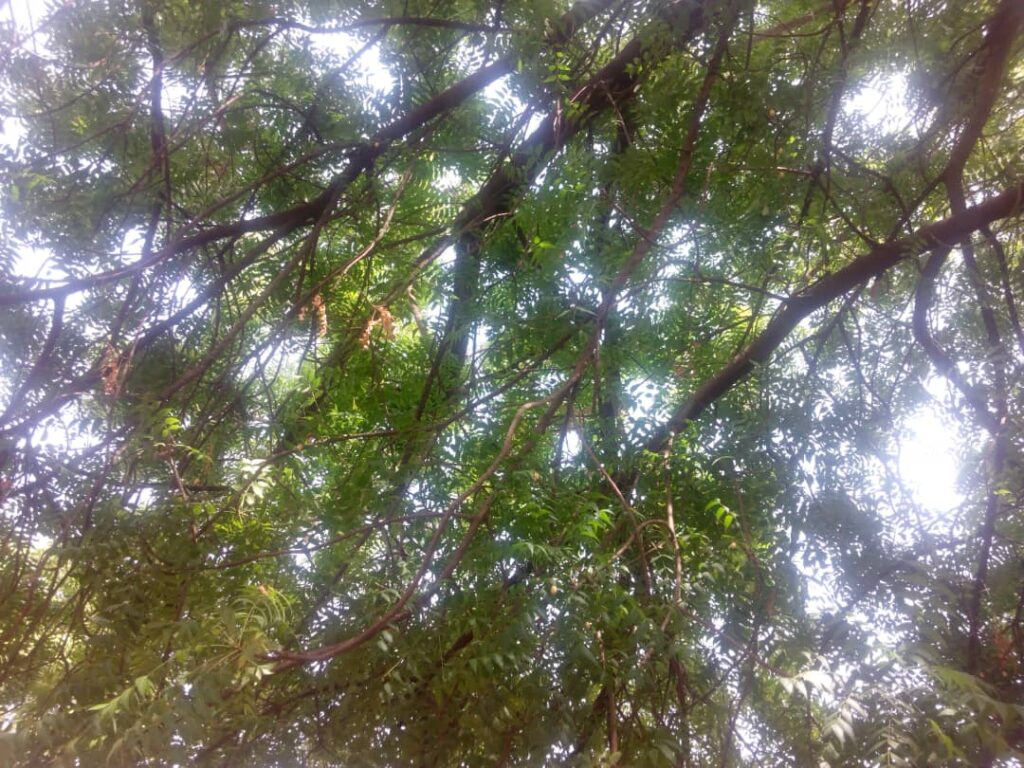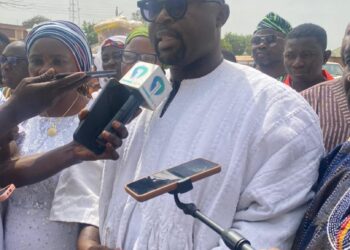padfm.com.gh / By Zulka
A Rocha Ghana is calling on the public to help protect the forest and plant more trees so that the country will experience more rains.
In a statement signed by Daryl Bosu to mark International Day of Forests, he explained that destruction of the forests lead to less rains.
“According to a report by World Resources Institute, Ghana’s rainforest is rapidly disappearing. In 2018 alone, the country saw an alarming 60% decrease in primary rainforest. This was the highest percentage of rainforest loss of any tropical country”, said the statement.
Below is the statement.
International Day of Forests
Media Brief
Context
The United Nations General Assembly proclaimed 21st March the International Day of Forests (IDF) in 2012. The Day celebrates and raises awareness of the importance of all types of forests, and trees outside forests for the benefit of current and future generations. According to the UN, the world is losing 10 million hectares of forest each year – about the size of Iceland – which accounts for 12 to 20 percent of the global greenhouse gas emissions that contribute to climate change.
With the theme for International Day of Forests 2021, “Forest restoration: a path to recovery and well-being”, A Rocha Ghana takes the opportunity to highlight the values, and economic costs of forest as well as reiterate key actions for Ghana towards an accelerated intervention of restoring our lost forest heritage
The Value of Forests in Ghana
Forest ecosystems in their various nature and forms all over the world provide critical ecosystem services that provide habitat to over 80% of the world’s biodiversity, provide services for agricultural production by improving soil fertility and water generation, through the protection of water bodies and rivers. Forests in Ghana support several households and businesses with non-timber forests products (NTFPs) like medicinal plants, mushrooms, snails, bushmeat and materials like rattan for cane chairs and climbers and ropes for building and many other livelihood services.
According to the World Bank CEA report, sixty percent of the population, including 53 percent of women, are employed by the agriculture and forestry sectors. Also 14% of the population lives in forest-fringe communities and directly depends upon forests for one-third of their livelihood resources and income.
The Economic of Ecosystems Services Study of the Atewa Forest in 2016 identified the Atewa Range Forest Reserve as a crucial water tower that support than one million people in Accra, including industries, urban families, and rural communities and farms with water services. The annual value of downstream water consumption from the two main river basins that have their source in the Atewa Range was more than US$28 million in 2016, According to the same study, forests serve as the main source of plant materials for the traditional medicine industry, valued at over US$30 million/year. Most streams and rivers across the country take t heir source or are protected by the network of forests across the country from the south to the north.
Threats and Economic Cost of Forest Loss in Ghana
Forest loss in Ghana is as result of threats from logging both legal and illegal, encroachment from farming activities both for food crops and cash crops, wood fuel harvesting and charcoal production, wildfires and in the very recent times, mining activities both legal and illegal for gold, and other minerals like bauxite.
The World Bank estimates that net forest loss in Ghana which was valued at US$1.578 bn in 2010 has risen to US$3.134 bn in 2017. According to a report by World Resources Institute, Ghana’s rainforest is rapidly disappearing. In 2018 alone, the country saw an alarming 60% decrease in primary rainforest. This was the highest percentage of rainforest loss of any tropical country. Several studies conducted on the perception of forest loss, have respondents expressing concern for the increasing forests loss across the country.
The State of the Environment Report 2016 by the Ministry of Environment, Science, Technology and Innovation as well as the World Bank Country Environmental Analysis (CEA) Report of April, 2020 identifies forest loss as presenting a tremendous risk for Ghana’s development.
The Opportunity
The alarming trend of forests loss, indicates that all is not well, despite several institutional mechanisms and funding support that the sector has received. The International Day of Forests under the theme “Forest restoration: a path to recovery and well-being”, should be used as a launch pad, to rally all stakeholders to put the country on a pathway of restoration and recovery.
This year’s theme also fits into the UN Decade on Ecosystem Restoration (2021-2030), a call for the protection and revival of ecosystems around the world and therefore a great opportunity for Ghana to tap into these regional and global mechanisms of recovery and restoration, in deeds and not just in words.
As we reflect on the theme of restoration of forests as a pathway to recovery and wellbeing, we take the opportunity to share some invaluable policy interventions that are crucial to bringing back our forests and enhancing the goods and services that forests provide Ghanaians.

Protect Existing Forests from Further Depletion: It is of utmost importance and urgency, that Ghana takes steps to ensure that the network of 200 state gazette forests reserves dotted across the country are protected from further depletion, through resourcing of Forestry Commission to undertake their protection and forest resource use regulatory functions. Critically, increasing incidence of allocating mining concessions and galamsey activities in forest reserves must be halted immediately.
Restoration of Depleted Forests Should Prioritize Forest Functions over economic timber production functions: It is commendable to observe that several state and bilateral sponsored programs are working or are in the pipeline with the objective to bring back forests where they once stood. In as much as this is important, it is even more important and crucial that we ensure that restoration, prioritizes native forest ecology and functions and not the accelerated restoration of degraded forests reserves with exotic plant species, focusing on timber production. The golden rule of restoration is to ensure that, we plant the right trees in the right place. Exotic commercial timbers trees do not have a place in our native degraded forests.
We must plant the right trees at the right place: We definitely must plant more trees to restore our depleted forests and also contribute to climate mitigation and building community resilience. We however reiterate the need to ensure that all tree planting activities across the country must ensure that we plant the right trees at the right place.
Tree Tenure Reforms is imperative to growing more forests in Ghana: Communities and farmers have for centuries nurtured trees on their farms only for the trees to be cut down by timber merchants without compensation. This has led to a culture where farmers no longer nurture trees to avoid prevent timber felling activities on farmlands, which eventually lead to crop losses. Individuals and farmers want to nurture and care for more trees. These must be supported by the appropriate management and benefit sharing regulations.

Standing forests is more valuable than cut trees: Our extractive economy policy pathway is not sustainable and needs to give way to recovery and sustainable development pathways that secures forests and the ecosystem services they provide, further promoting wellbeing and development in harmony with nature. There is a global paradigm shift to green developments pathways that places emphasis on nature-based solutions that secures forests and enhances natures gifts, goods and services. We have said all the good things about staying true to SDGs 13 and 15 but we are yet to see dedicated actions to that effect. Let that action start with excluding Atewa Forest from Ghana’s Integrated Aluminium Development program. Atewa Forest is give much more than bauxite.
Our quest to recovery from Covid-19, Climate Change, global biodiversity loss and depleting quality of life lies in our ability to restore nature and make nature work for us. We can do that by restoring what is lost and each and every one of us has a role to play.
Spread the word and let your actions count.
For further Information
Daryl Bosu
Tel: 0202555727
Email: daryl.bosu@arocha.org
padfm.com.gh

















